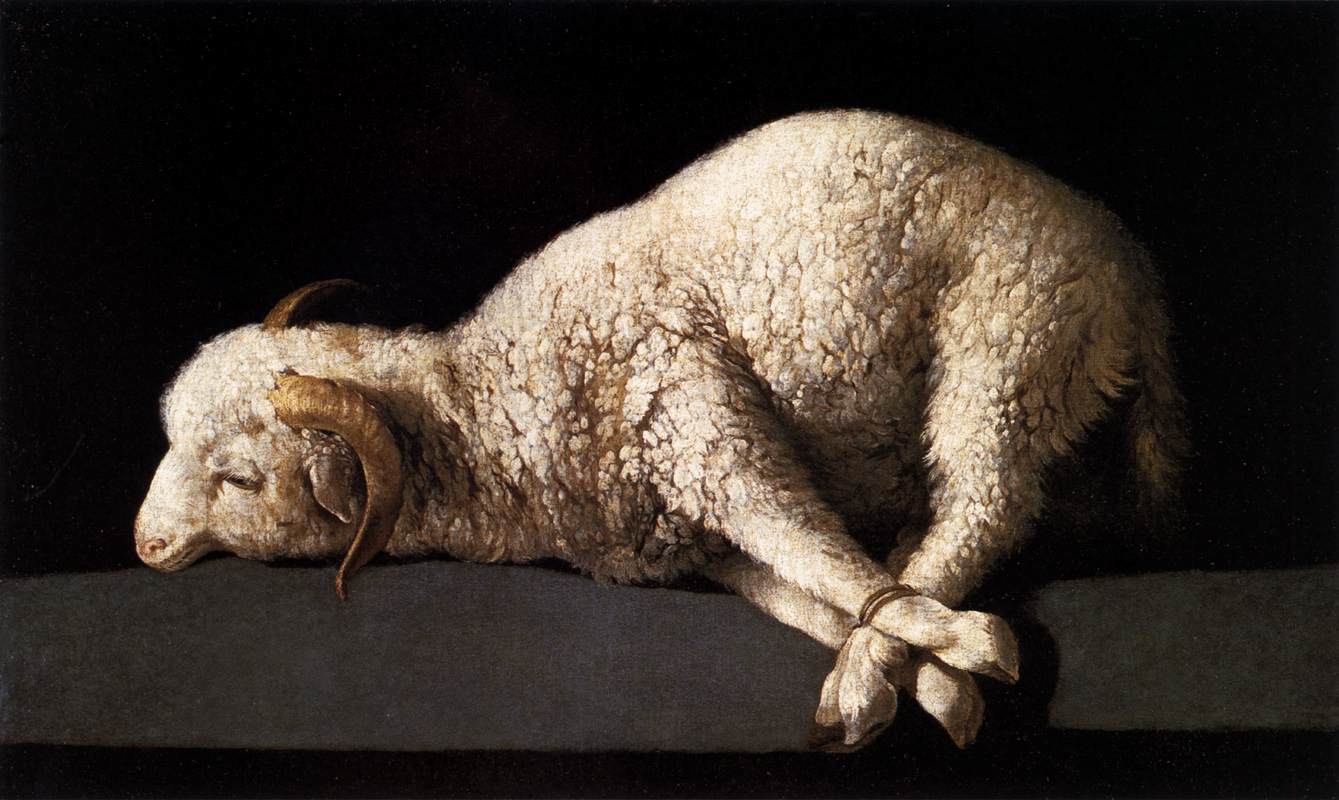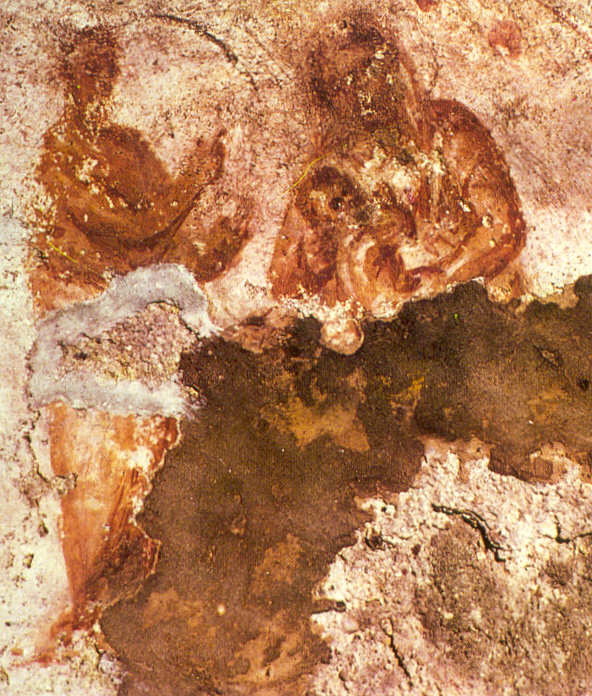Ok, I'm back to thinking & writing seriously about life after a slew of wonderful visitors this week . . .
To understand how hope can exist despite the Problem of Evil,
one must change suffering into sacrifice.
[Side Note: The Problem of Evil = questions like: Why do bad things happen to good people and good things happen to bad people? How can there be a just and good God if He allows evil to exist? How can the Church claim to be God's instrument to salvation on earth if her leaders and members fall into evil and hurtful behaviors? etc.]
First of all, our suffering is uniquely human. We do not suffer merely on a physical level, but on an emotional and moral level as well. Animals don't suffer as we do. They suffer physical evil, but having no concept of evil (just hurt or pleasure) they cannot suffer from a feeling of injustice or hate as we can.
Thus the ultimate answer to suffering and how to bear up under it is also not merely physical, but also spiritual. Suffering viewed as an unfortunate evil, or even as a necessary evil, cannot give you hope, especially if there is no prospect of an end to that suffering in the near future. Suffering must be elevated to the spiritual and
offered as a
sacrifice.
A sacrifice is a freely chosen, difficult action that constitutes the death of something lower for the sake of something higher. For instance, it is a sacrifice to give up sleep in order to take care of my cranky, teething son, but sleep is a lower good than caring for another human being, thus the material needs in me bow to the needs of a soul in my charge and the sleep is given up. Human kind has an innate sense that one should give something dear to us to that which we hold in awe. The most simple savages offered precious metals, animals, food, and even human beings to their gods; the most educated modern man offers his money, time, health, peace of mind, and even sometimes the relationships he has within his family to the modern gods of success and fame. But both of these examples are a one-way relationship--peon appeasing a cold, impersonal behemoth or mammon.
The Jewish people held their God in great awe, yet they were permitted a
covenantal relationship with Him. A covenant is deeper than a contract [I give you a burnt offering and you give me rain for my crops.] A covenant is a union of persons, in this case, a union between God and His chosen people. The Jews also made covenants with each other. To do so, they would slaughter one or more animals, cut them in half, and walk between the hewn pieces. The message was: "If I break this sacred bond between us, may this happen to me as well." That's intense. [P.S. That's also the type of bond we Catholics believe is made in marriage]. Check out Genesis 15 to see God's covenant with Abram.
Christ, fully human and fully divine, came to seal the perfect covenant between God and Man with His very body; he
himself served as the sacrificial lamb [ask me about the amazing parallels sometime; this is also the same sacrifice celebrated in the Eucharist at every Mass]. Christ's passion and death, foretold in minute detail in the Psalms and Isaiah and prefigured in every Old Testament covenant, finally repaired the eternal rift (caused by Adam's sin) between God and Man in a way that no limited, human sacrifice ever could. Christ as Man made his innocent
suffering into a
sacrifice through a willing, loving, rational, active choice. He invites us to imitate His gift of self as the model for perfection, atonement, and unity with the Father.
God does not
need our gift of self. But He
wants our freely-chosen sacrifice for
our sake. We
need to give of ourselves to become fully who we are meant to be--to be freed from the chains of addictions and attachments to lesser things and to participate more fully in the life of God [that's another whole topic]. Let my propose an example on a more human level. Many cultures, the Native American's come to mind, had elaborate coming of age ceremonies and rituals for their youth. The young men in particular were challenged to accomplish certain dangerous feats that tested their endurance and strength of body and mind in order to
prove their manhood. Biologically and psychologically it is fairly obvious when a male has reached the age when he is ready to accept greater responsibilities and a family. The tribe didn't need him to jump off a cliff or survive in the wild on his own for several days. But that young male needed to know that he was a man. His willingly accepted suffering proved that to himself. However, this is an imperfect example on several levels, the most important of which is that the tribe needed confident, proven men as leaders in order to survive.
A very stoic man or woman can endure much suffering; an authentic
lover, however, sacrifices himself with nearly reckless abandon, to the point of giving his life for the beloved. This is not a mere hardened endurance; this is a joyful [not always giddy, but rather peaceful] embrace of that which is difficult for the sake of the beloved. No sacrifice is too great for the one who truly loves another person. This is the type of sacrifice Christ modeled for us. This is the heroic strength that man is capable of in imitation of His God. Our sacrifice increases our capacity to love.
St. Augustine said, "When one loves, one does not suffer; of if one does suffer, the very suffering is loved."
Suffering becomes sacrifice. A burden becomes a gift. Pain that often causes unrest, division, and isolation is super-naturalized to become a medium of peace and unity. In losing everything, we are given the ability to find ourselves more fully through a discovered empathy with the hardships of our fellow-man and a deepened relationship with the Suffering Servant who paid the ultimate price for us.
To be continued.
Sorry for the many brackets and side notes today . . .
Image: http://www.jesuswalk.com/lamb/images/zurbaran-agnus-dei-lamb-of-god-madrid-1339x800.jpg























